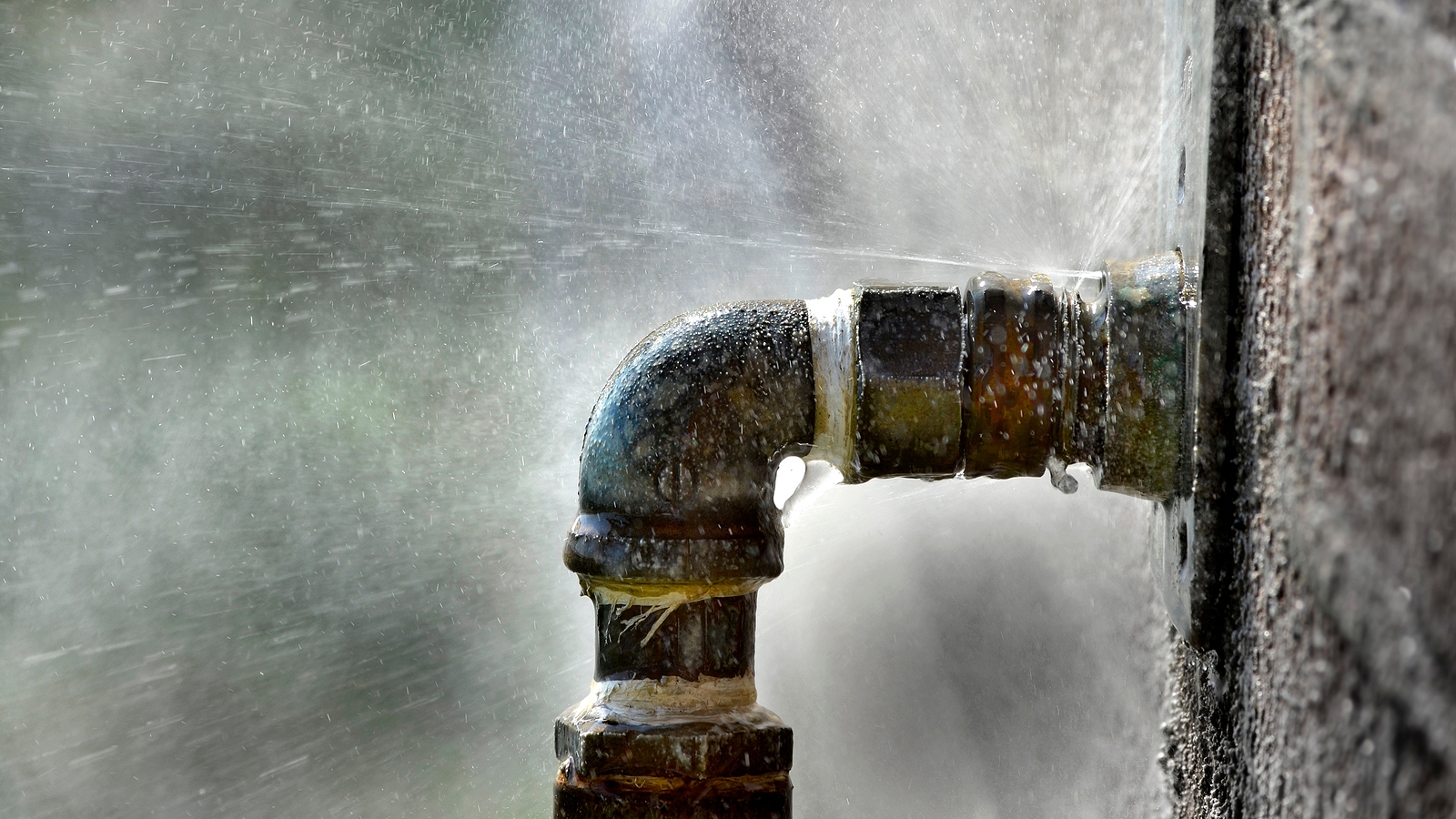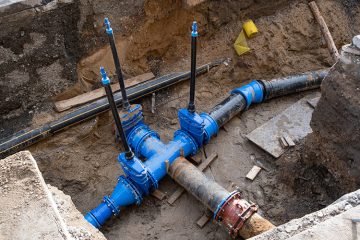When it comes to maintaining a home’s plumbing system, most homeowners focus on the more visible elements, such as faucets, sinks, and drains. However, one of the most critical components is often hidden underground: your water line. A water line is responsible for delivering water from the main source to your home. Over time, this essential infrastructure can deteriorate due to various factors, causing inefficiencies and potential problems that can affect your home’s overall plumbing system.
1. Addressing Leaks and Water Pressure Issues
One of the primary reasons for considering a water line replacement is to resolve persistent leaks and water pressure problems. As water lines age, they can develop cracks or holes due to corrosion, shifting ground, or even invasive tree roots. These leaks not only waste water but can also result in a noticeable drop in water pressure.
Low water pressure is often one of the first signs that your water line may be compromised. When a pipe is leaking underground, less water is available to flow into your home, meaning taps, showers, and appliances may not receive the pressure needed for optimal performance. Replacing an old or damaged water line can restore proper water flow and ensure consistent pressure throughout your home.
2. Reducing Water Waste
A hidden leak in your water line can cause thousands of gallons of water to go to waste without you even realizing it. The EPA estimates that household leaks can waste nearly 10,000 gallons of water every year. In addition to being environmentally harmful, this water waste can significantly increase your utility bills.
By investing in a water line replacement, you can eliminate these leaks, reduce water waste, and lower your monthly water bills. With modern materials and techniques, newer water lines are designed to last longer and resist many of the common causes of leaks, such as corrosion and root intrusion, which further ensures that your home’s plumbing system runs efficiently.
3. Enhancing Water Quality
When water lines get old, they can be more likely to get contaminated. Pipes that are rusty or breaking down can let rust, dirt, and other contaminants into your water supply. This can make the water you drink, cook with, and bathe in less clean.
You can make the water that comes into your home cleaner by replacing an old water line. Modern water lines are often made of materials that don’t rust or break down easily in other ways. This keeps your water clean and safe. Cleaner water is better for your health and the health of your family. It also makes tools that use clean water work better, like dishwashers and washing machines.
4. Preventing Costly Repairs
Delaying water line replacement can lead to more serious and costly problems in the future. A small leak today could turn into a major rupture, causing extensive water damage to your property. Flooding from a broken water line can damage your home’s foundation, walls, flooring, and landscaping, leading to expensive repairs and even potential safety hazards.
Replacing your water line proactively can prevent these kinds of emergencies. While the upfront cost of water line replacement may seem steep, it is often much cheaper than dealing with the aftermath of a major water line failure. Experienced plumbing specialistscan provide homeowners with the peace of mind that their water system is secure and functioning properly, avoiding the stress and high costs associated with emergency repairs.
5. Boosting Property Value
Homeowners are often looking for ways to increase the value of their property. Replacing an old or faulty water line is a smart investment that can make your home more appealing to potential buyers. Many prospective buyers are concerned about the long-term reliability of a home’s plumbing system, and knowing that the water line has been replaced can be a significant selling point.
In addition to preventing future issues, a new water line offers a tangible improvement in the home’s infrastructure. Making this improvement is not only useful, but it can also earn you money when you decide to sell.
6. Improving Energy Efficiency
Inefficient water lines can have a surprising impact on your home’s energy usage. When water pressure is low or inconsistent due to a damaged line, appliances like water heaters, dishwashers, and washing machines must work harder to compensate. This added strain can increase your energy consumption and shorten the lifespan of your appliances.
By replacing an old or damaged water line, you can help your appliances operate more efficiently. With steady water pressure and a consistent water supply, your water heater and other devices can function optimally without the added energy cost. Improved plumbing efficiency often translates into lower energy bills and a more environmentally friendly home.
7. Ensuring Compliance with Modern Standards
Building codes and plumbing standards evolve over time, and older water lines may no longer meet current safety and performance requirements. By opting for water line replacement, you ensure that your home’s plumbing system complies with modern regulations, which can be important if you plan to sell or renovate your home.
Upgrading your water line with newer, more durable materials like copper or PEX (cross-linked polyethylene) piping can provide better performance and longevity. These materials are not only less prone to corrosion but are also more resistant to freezing, reducing the risk of pipe bursts in colder climates.
8. Future-Proofing Your Home’s Plumbing System
As homes age, their systems require updates and upgrades to remain efficient. A water line replacement is an excellent way to future-proof your home’s plumbing system. By investing in a durable, modern water line, you can avoid many of the common problems that older lines face, such as leaks, contamination, and poor water pressure.
Additionally, many modern water lines are designed to handle higher water pressure, which can be beneficial as households expand or as water usage increases over time. Future-proofing your plumbing system with a new water line ensures that your home will be well-equipped to handle your needs for years to come.
Conclusion
It is important to repair your water lines on a regular basis to keep your home’s plumbing system working well. If you have low water flow, problems with the quality of your water, or a lot of leaks, replacing your old water line can fix these issues and make your home’s plumbing work better overall. Replacing your water lines is an investment that pays off in the long run because it saves you money on fixes, lowers the amount of water you waste, and raises the value of your home.A professional plumber can look at the state of your water line, tell you what to do, and replace it without any problems. This will give you a better, more reliable water supply for years to come.



